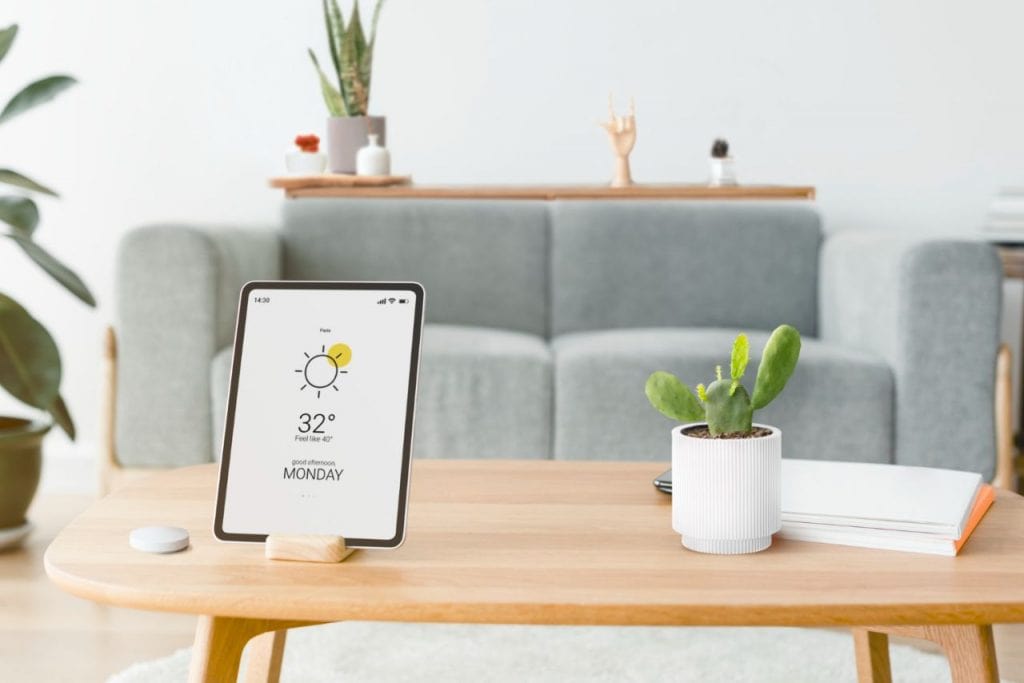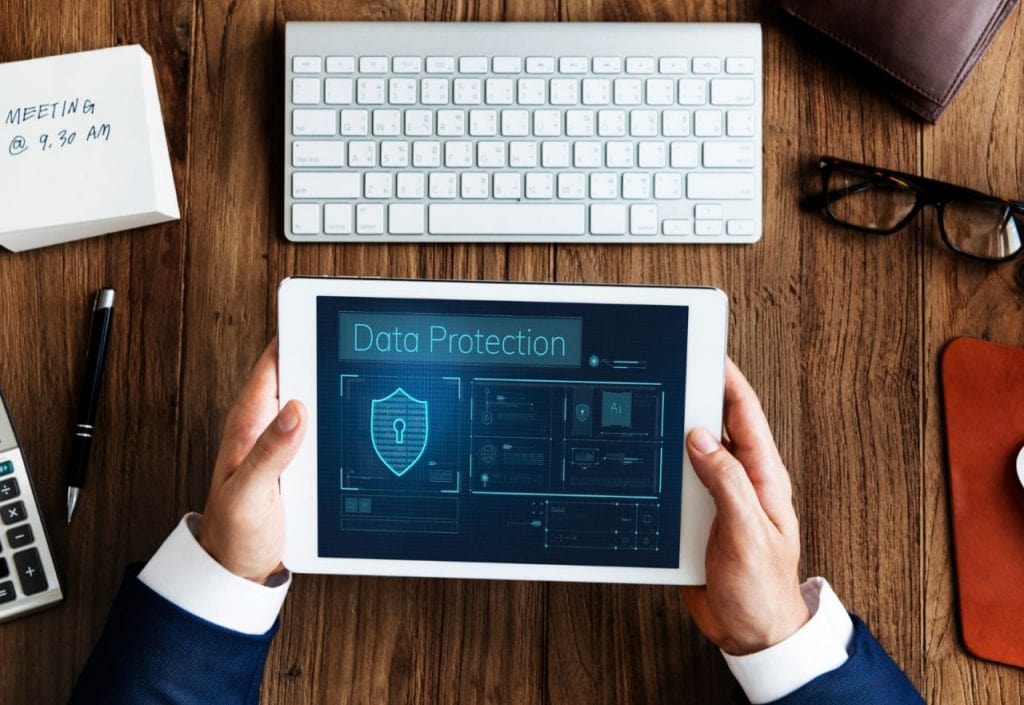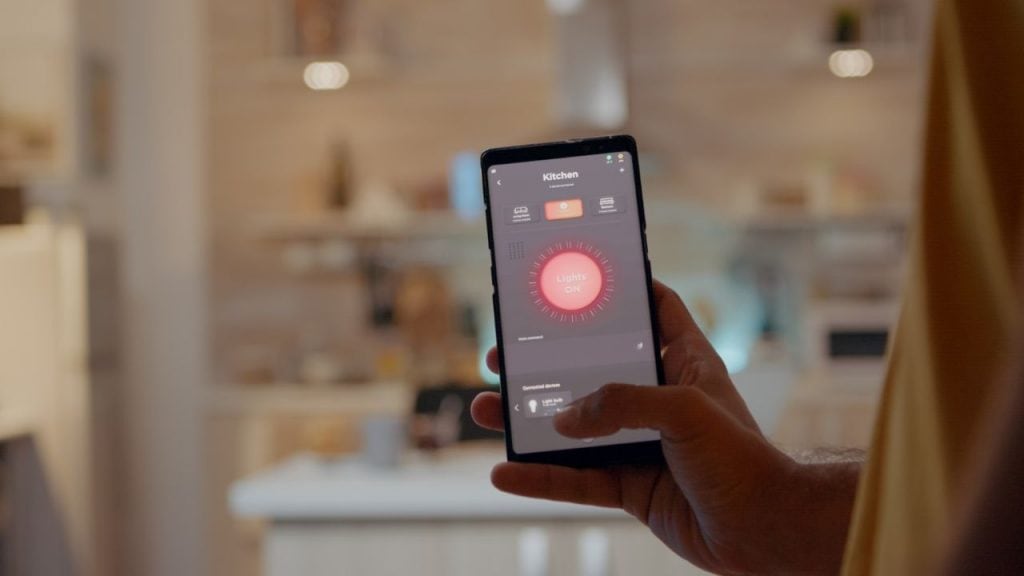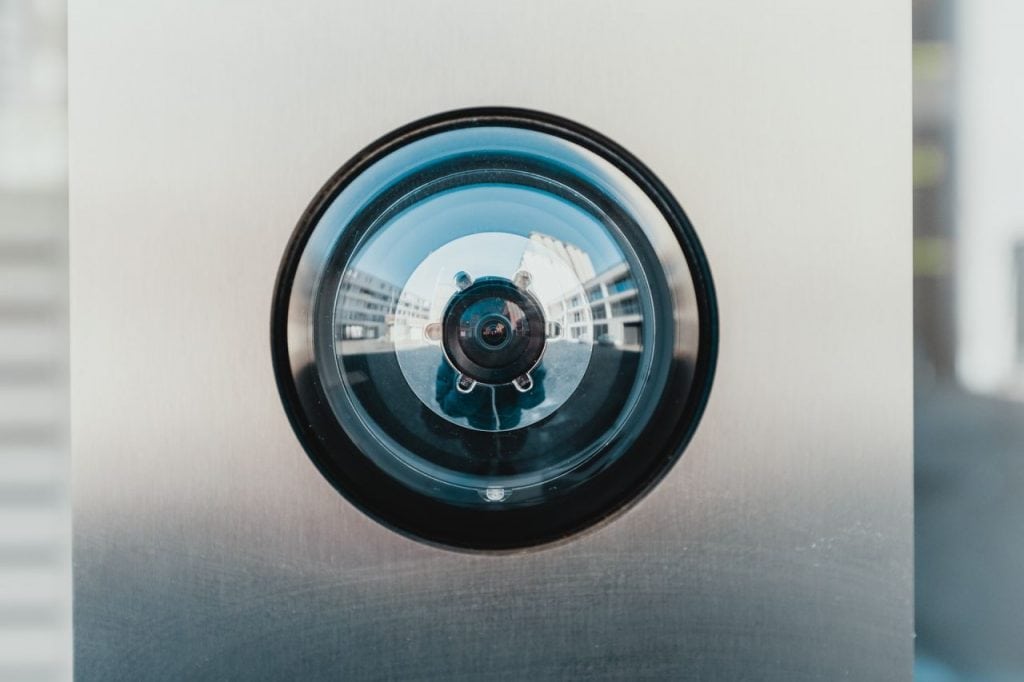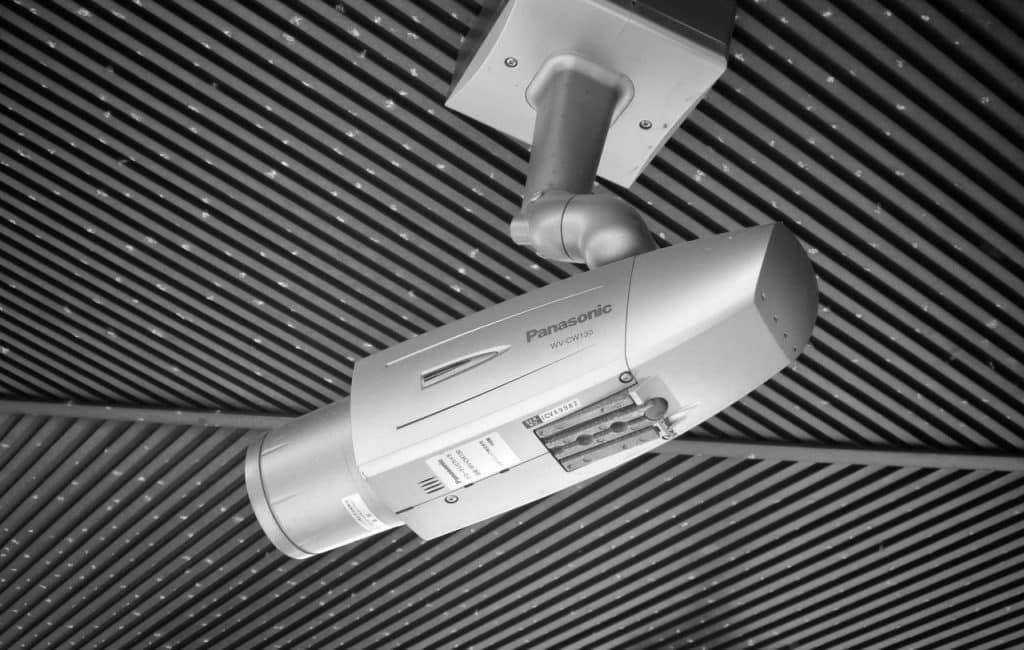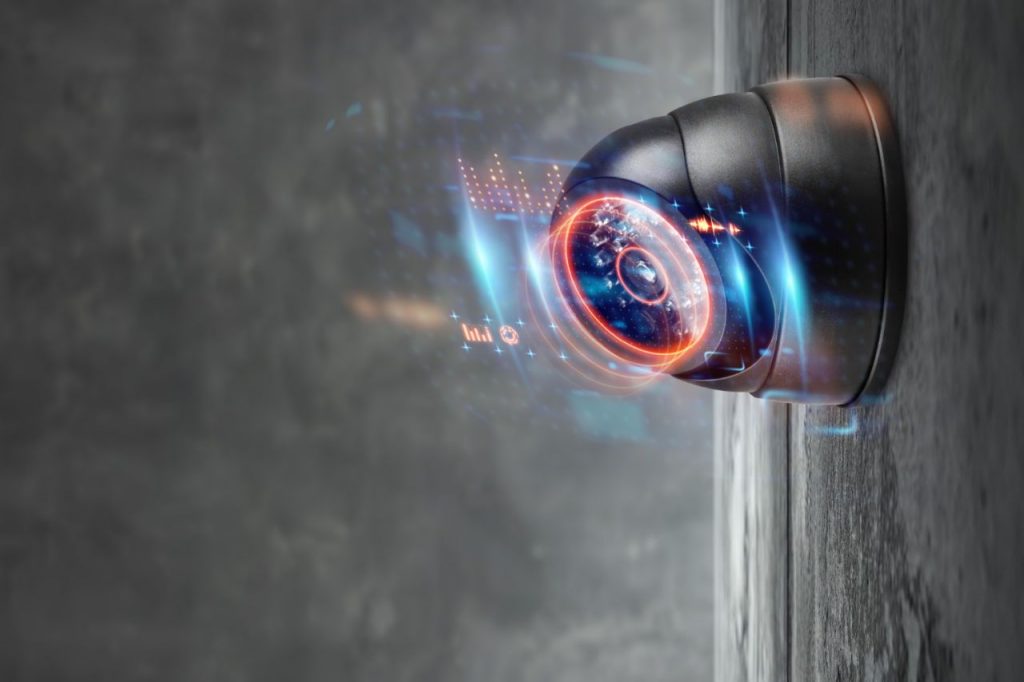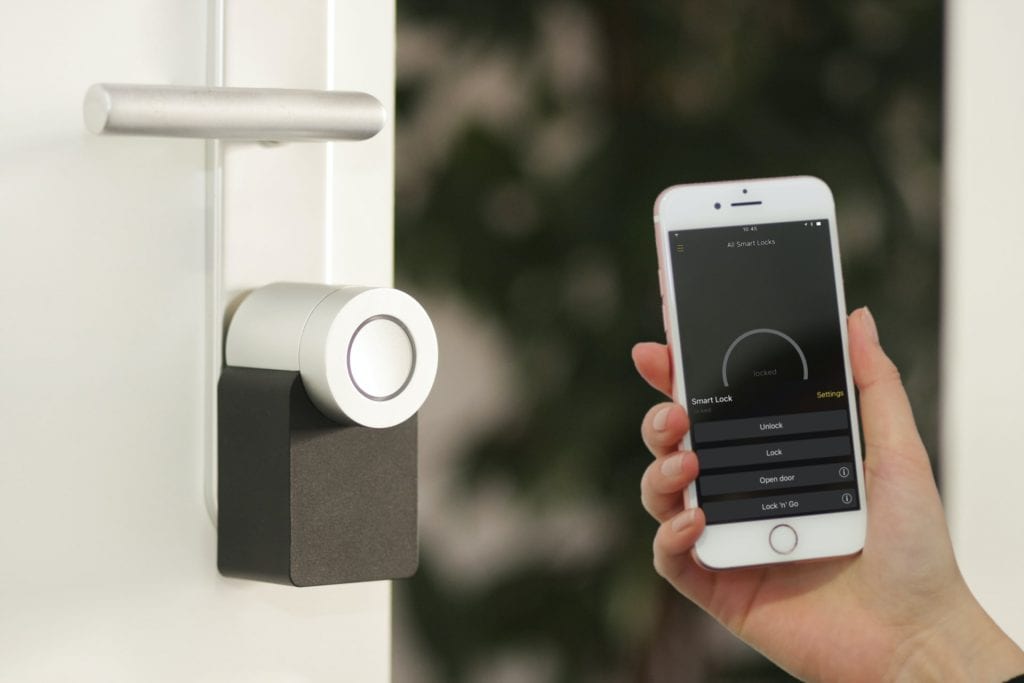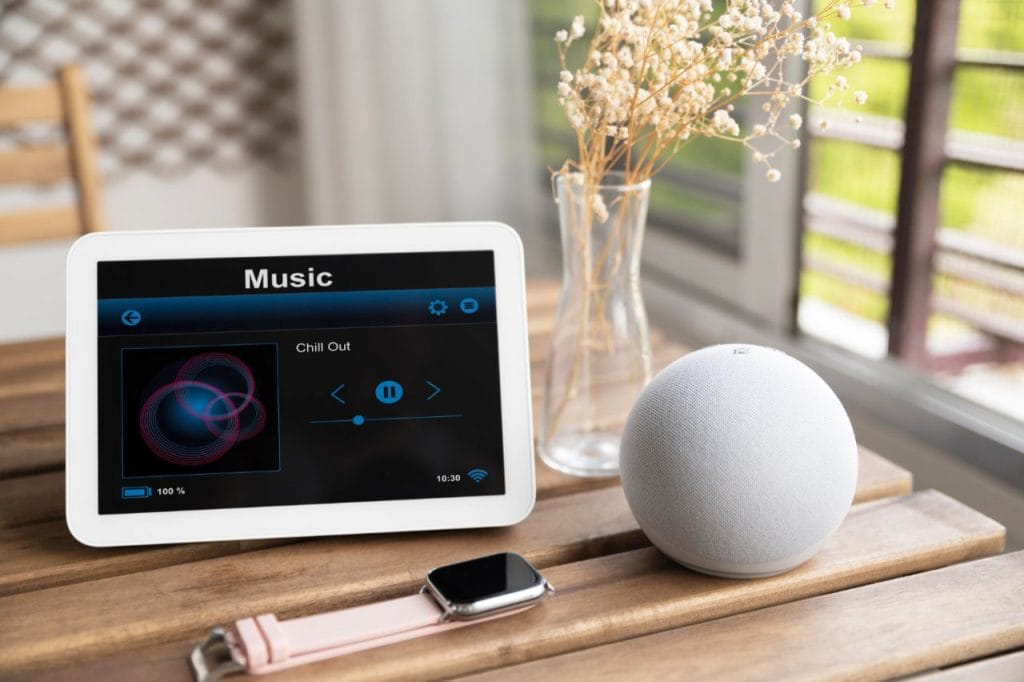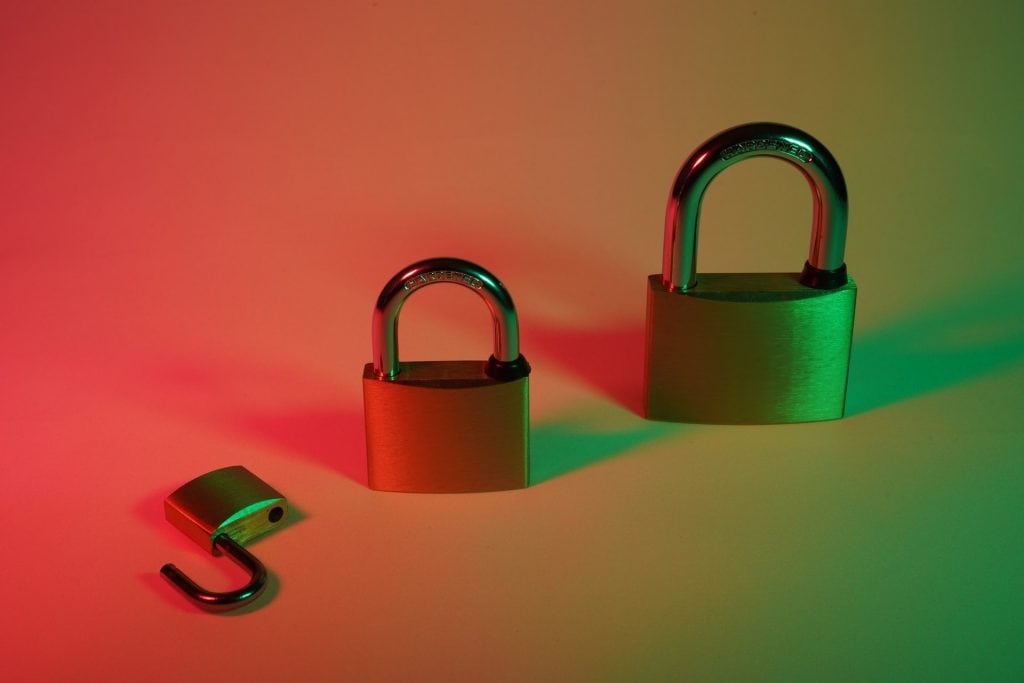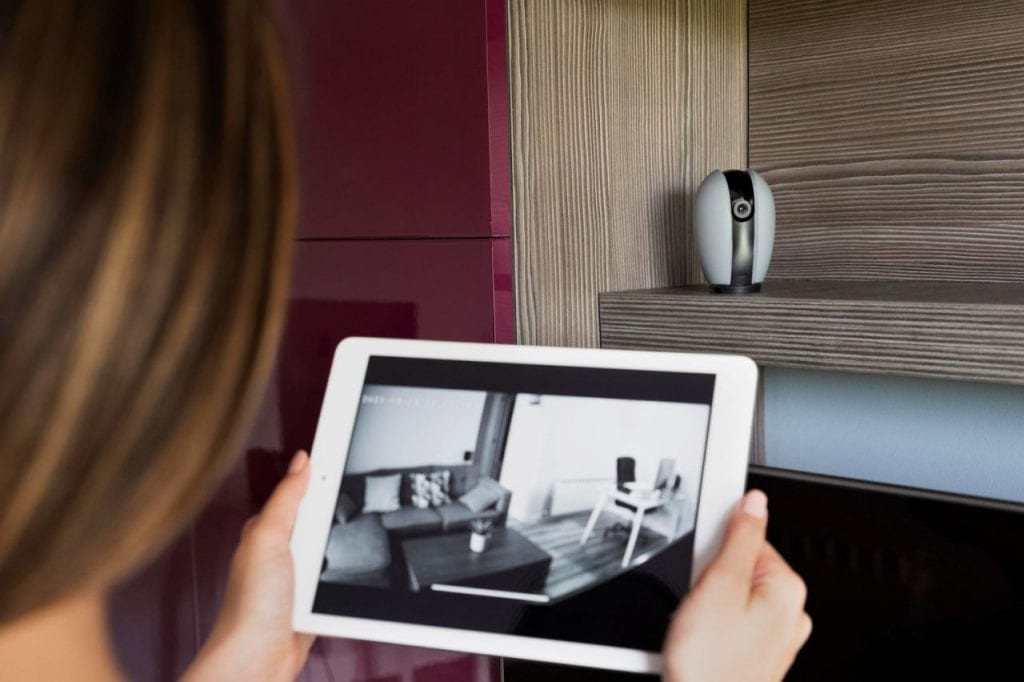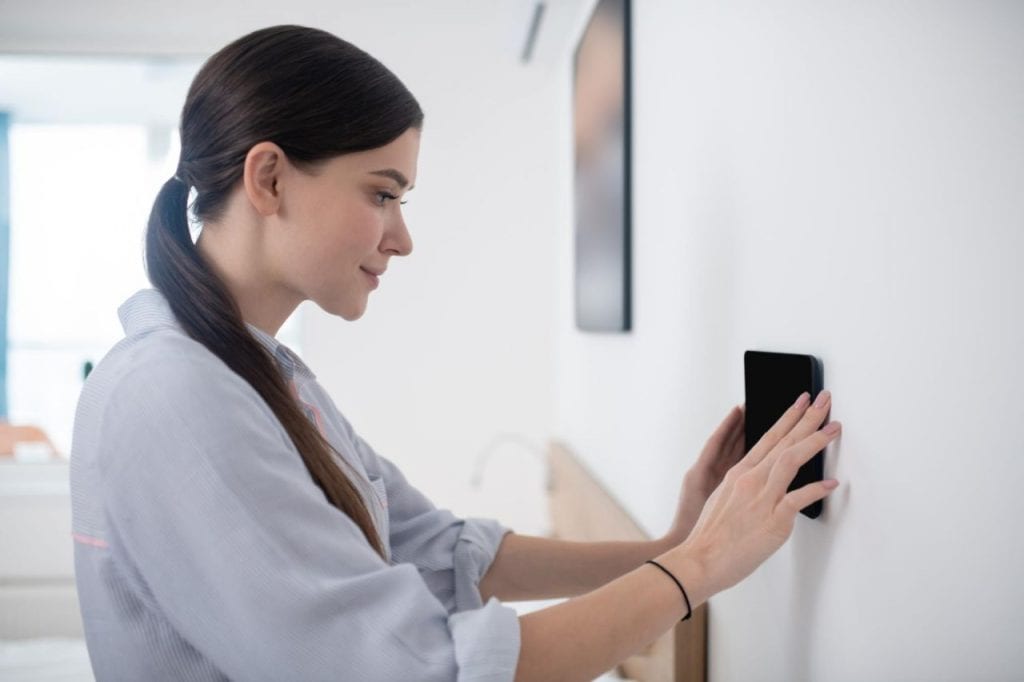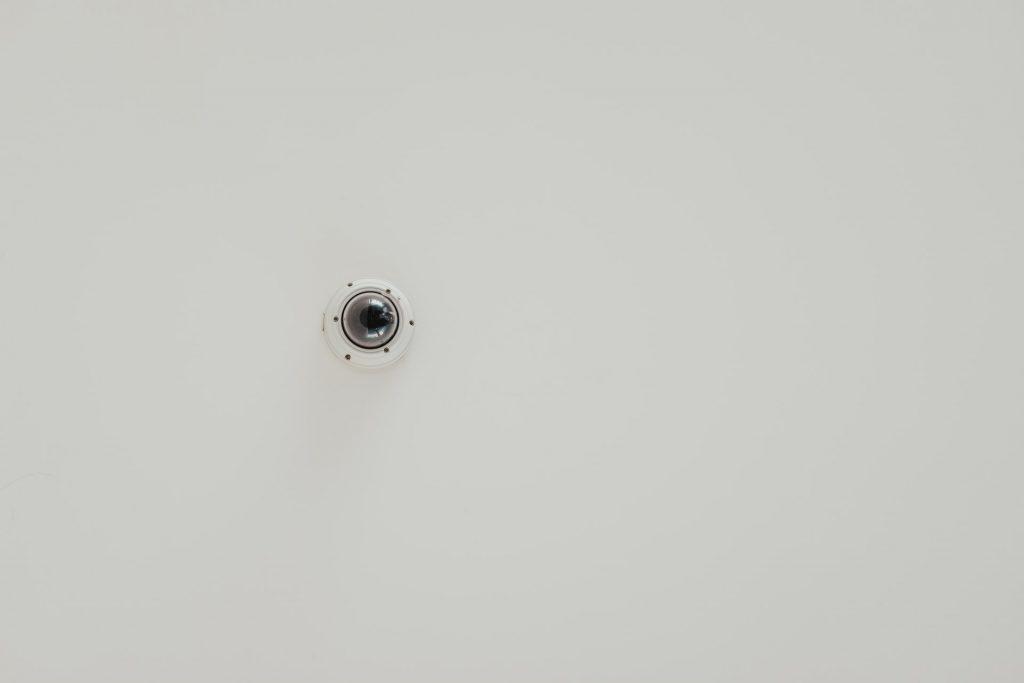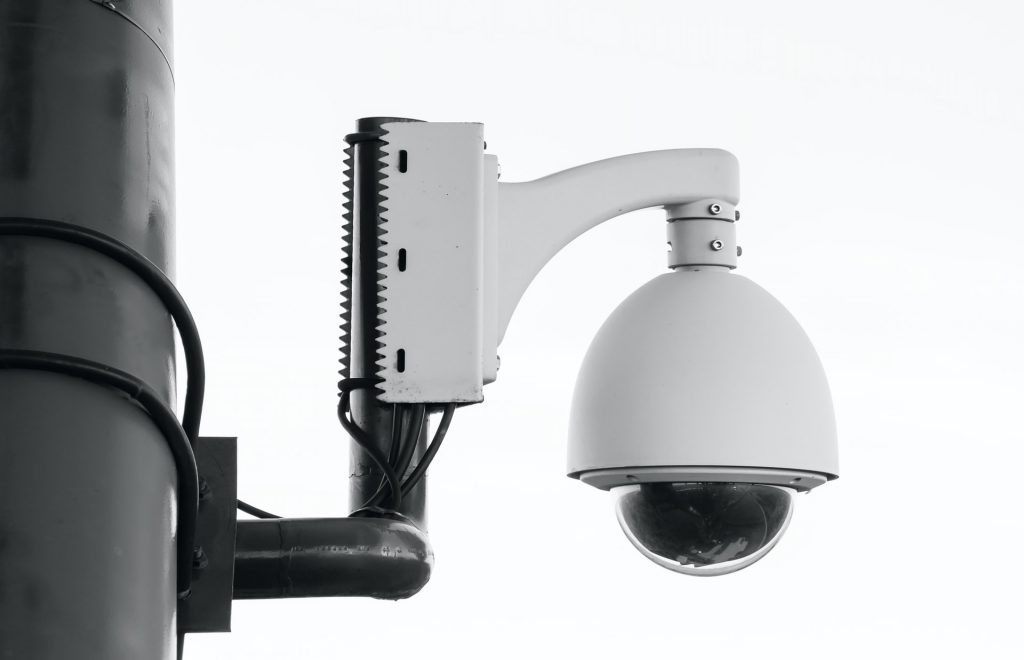Is having a smart home safe? That's a question that people are asking more and more as they become increasingly aware of the technology. Smart homes are outfitted with devices like lights, thermostats, and security systems that can be controlled remotely. While there are many benefits to having a smart home, there are also some risks that come with it. In this blog post, we'll explore both the pros and cons of having a smart home so that you can make an informed decision about whether or not this type of home is right for you.
Are Smart Homes Secure?
Smart homes are safe to an extent. But like anything connected to the internet, there's the possibility of hacks and security breaches. Additionally, some smart lock systems make your home even more vulnerable to these threats by letting the doors open on their own for couriers.
If all weak points strike simultaneously, a pro hacker may breach the smart lock. Or, your home may be exposed to a cyberattack, stealing private information but not necessarily breaking into the house.
How Do Smart Homes Work?
To understand the associated risks with smart homes, you need to learn first how they work. The devices in smart homes contain tiny computers that can connect to the internet. As a result, they can be remotely controlled.
By saying 'devices,' we mean each device in the house, starting from the microwave to the house's whole heating system.
These devices use an internet protocol to connect through a hub. The hub is usually your smartphone, or it may be a network router.
However, unlike the traditional remotely controlled devices, smart home devices can collect your private information and store it. The data can go all the way from credit card data to your daily habits. Plus, it may be stored on the network or the device, and here lies the risk of exposing it to hackers. Each device that can connect to the internet poses a privacy concern.
Home Security FAQs
Is Smart Home Bad For Health?
As long as your home appliances connect to the internet, this means you can easily control them using your mobile devices. ... However, having a smart home poses several health hazards for its users because of the electromagnetic frequency (EMF) radiation released by tech gadgets at home.
How Do I Make Sure My Smart Home Is Secure?
- Choose devices wisely.
- Change default username.
- Use strong passwords.
- Use two-factor authentication.
- Avoid public WiFi for remote access.
- Check app permissions.
Can A Smart Home Be Hacked?
Yes, smart home automation can be hacked. In most circumstances, this is due to user error and ignorance. However, hackers can gain home automation systems due to inadequate security protocols or outdated software.
How Do I Stop Smart Home Devices From Spying On Me?
- Beware of your smart TV.
- Turn off WiFi when you leave.
- Delete your data.
- Disable your microphone and camera.
- Update all of your devices.
- Utilize the protection of a firewall.
Are Smart Devices Safe?
You may have heard that the FBI is warning people about their smart TVs, smart speakers, and smart home devices in general. But, unfortunately, most of the smart home devices you connect to your router have almost no security at all, which means it's important to take steps to secure your home network as a whole.
How Safe Are Smart Homes?
Despite the predicted growth in demand for smart home devices in the years to come, consumers are still not fully aware of the threats associated with owning these devices.
Smart Home Market Growth
There were initial worries that the market for these products would suffer due to COVID-19; however, a recent survey conducted by Xiaomi shows that the demand for these products has increased in the pandemic. Xiaomi also claimed that, on average, consumers bought two new smart devices since March 2020, with Generation Z consumers purchasing three on average.
According to International Data Corporation (IDC), sales units of smart home devices are forecasted to rise to more than 1.4 billion sales worldwide towards the end of 2024, according to International Data Corporation (IDC).
Parks Associates estimate that the increase in sales is not down to simply luck or a pandemic-based trend as nowadays consumers rely on smart devices for making their lives easier.
Smart Home Security Issues
The rise in popularity does come with its drawbacks. As with any technological device, security and privacy are always in question.
Smart home devices do not possess a screen that would alert the user towards any suspicious activity occurring on their device. Alongside this, the nature of these devices involves them being online all the time, which allows their security system to be bypassed much more conveniently.
Smart homes are usually very intuitive and utilize cutting-edge technology. However, the material itself is built from cheap hardware that has vulnerabilities easily exploitable by bad actors sniffing around a home network. If hacked, a smart home device can be accessed remotely, leading to valuable information being stolen, compromised, misused, or destroyed.
Smart Home Threat Ignorance
Although people are undoubtedly aware of the security risks smart home devices carry, consumers have a sense of ignorance about their efforts to prevent the threats they face.
In its 2020 Xfinity Cyber Health Report, Comcast disclosed that 95% of respondents underestimated the gravity of cybersecurity attacks they face each month. As a result, their responses were well below the figure of 104 attacks monthly, calculated by the company.
Though people were aware of the most targeted devices (computers and laptops, smartphones, etc.), most respondents displayed behaviours that would compromise their devices. The chief among these behaviours was setting similar passwords for multiple websites, allowing hackers to access multiple accounts with a single password.
Are Smart Homes a Smart Idea?
Here are three reasons why a smart home is not such a smart idea and three more why it will unarguably upgrade your living standard

Not All It's Cracked Up To Be
A Hefty Price Tag
It's expensive to transform homes into smart homes. For starters, you'll need to buy all new smart home appliances, devices, switches, and plugs to automate your lighting, climate control, security system, etc. Smart home maintenance may also put a dent in your wallet since digitally integrated appliances and devices are often more expensive to repair than their traditional counterparts. This is because their technology is more delicate and prone to high-tech malfunctions, requiring more frequent and sophisticated (i.e., costly) repairs.
Can't We All Get Along?
Besides the obvious risk of serious malfunctions in your smart home when your internet connection goes kaput (particularly worrying if one of your connected devices is a smart baby monitor), there are other frustrations. For example, there's no guarantee that all devices will sync with smart assistants, like Amazon's Alexa, Apple's Siri or Google Assistant, among others; getting various devices from different companies to work together can be more time-consuming than manually operating "dumb" appliances. Plus, the more devices you acquire, the more apps you'll have to download and create separate accounts, which can be tedious and burdensome.
Say Farewell to Privacy & Intimacy
As with any internet-connected device, smart homes are at risk of getting hacked. Each connected device notifies its corresponding app when used, sending a digital fingerprint to the router. Hackers monitoring your router can learn about your daily schedule and view videos/images of you or maps of your home. Such data can benefit anyone wanting to break in or spy on your once intimate home life. (And what about the nightmare of hackers taking over control of your home?)
A less frightening but still worrisome element is that your internet-connected devices, which are supposed to serve you, serve the needs of manufacturers and tech giants. As a result, the data these devices gather about your home and family will probably be shared with companies using data accumulation for financial gains. This invasion of privacy is permissible after Congress voted in 2017 to allow Internet Service Providers to collect and sell customers' internet usage data.
As Good As It Gets
Enhances Safety & Security
Smart homes greatly enhance people's levels of safety. By being able to easily turn off any smart appliances from your phone – within seconds – there's no more reason to panic when you're out of the house and suddenly realize that you've left the oven on. (Some smart appliances have been designed to turn themselves off when not in use.)
You can remotely lock any home doors you forgot to lock for greater security. You can also use smart appliances to monitor your home – and your loved ones inside. So, whether you're sitting in your office 30 minutes away or on a business trip abroad, you can view your child or pet from afar and exchange voice messages with them through a toy or device. In addition, automated technology offers peace of mind to parents about caretakers or loved ones left by themselves.
Good for the Wallet & the Environment
Smart home technology is more cost- and energy-efficient than traditional home appliances and electronics. Since connected appliances are designed to work with the least amount of energy needed (and provide feedback about how best to preserve energy), this cuts down on the gas, electric and water bills. For example, a US Environmental Protection Agency study reported that smart home technology owners solely for thermostat control saved between 10%-30% on their energy bill. Likewise, take new sensor technology in smart shower systems, saving money by maximizing water usage and minimizing waste.
Boosts Self-Sufficiency
The endless apps and connected devices constantly entering the market have the potential to not only make your life easier but vastly increase accessibility to elderly or disabled family members. This can boost their quality of life. By letting them utilize voice commands to power appliances or by putting control of their daily home needs at their fingertips, they can live more independently. Like you, they can also program a smart robot vacuum to clean for them and use their phones to handle lawn maintenance or to see who's just rung the doorbell. For their added safety, you can also remotely monitor them from afar.
Biggest Security Risks in Today's Smart Home
Smart homes use internet-connected devices, such as light switches and fridges that can autonomously flick on your lights, open doors, or even alert you when you're running low on milk. But all this convenience and connectivity come at a price. Namely, smart-home devices are prone to many security vulnerabilities that can put your data or property at risk if you're not careful. Ahead are the scariest threats posed by your smart-home devices—and how to mitigate them.
Targeted Attacks
Smart-home devices hold a treasure trove of personal information, from your birth date to credit card details, that cybercriminals can steal via hacking if the devices lack robust protections to thwart attacks. They can then use the stolen data to launch targeted attacks to rope you into shady deals. For example, if a hacker were to uncover that one of your family members has debts, he could send you a phony request for money on behalf of that relative. To avoid becoming a cyber victim, don't share financial information, such as bank details, with smart devices, and avoid connecting email clients, calendars, and other apps that contain sensitive information with your devices.
Identity Theft
In some instances, instead of breaching a single individual's smart device to catch his data, a hacker will infiltrate the database of a smart-device company to swipe the data of all its users. Massive data breaches can expose the data of hordes of users of certain smart devices. If you're one of those unfortunate users, a digital thief can apply for credit cards using your name, take out a mortgage under your name, or otherwise impersonate you and turn your life upside down. You can reduce the risk of a data breach affecting you by sharing minimal personal information with smart devices and regularly monitoring your credit report for negative changes.
Password Exploitation
Too often, smart-home hubs that connect all the smart devices on your network are secured with a weak password. Unfortunately, this security lapse allows clever hackers to penetrate easily and gain access to the hub and tamper with it and other smart devices in your home; for example, hackers could spook homeowners by switching lights on and off or changing TV channels.
To avoid virtual break-ins, always establish complex, unique passwords and use two levels of authentication for all your smart devices.
Location Tracking
You trust your smart-home devices to keep your private information private, particularly information about where you live. But these devices can betray that trust by giving away your location and making it possible for hackers to find you and spy on you in real-time.
For example, clicking on a malicious link through a smartphone or computer has in the past duped vulnerable smart speakers into revealing a user's location right down to the street address when the phone or computer was connected to the same network. Avoiding suspicious links and maintaining a second network just for smart-home devices can help keep your coordinates a secret.
Home Intrusions
While the potential for remote device tampering is plenty scary, it pales in comparison with the risk of a physical break-in posed by security devices like smart door locks and surveillance cameras. Unidentified security loopholes in any of these devices could grant hackers permission to disable cameras or unlock doors to let in accomplices, burglarize your property, or even lock you out of your own home. Installing security door braces and a security alarm that isn't smart can help guard against intrusions.
Appliance Or Property Damage
Breaches of smart devices that control critical functions of the home, such as cooling and heating, can be even more disastrous. For example, a hacker with access to your thermostat could fiddle with it, forcing your HVAC system into overdrive and causing it to malfunction.
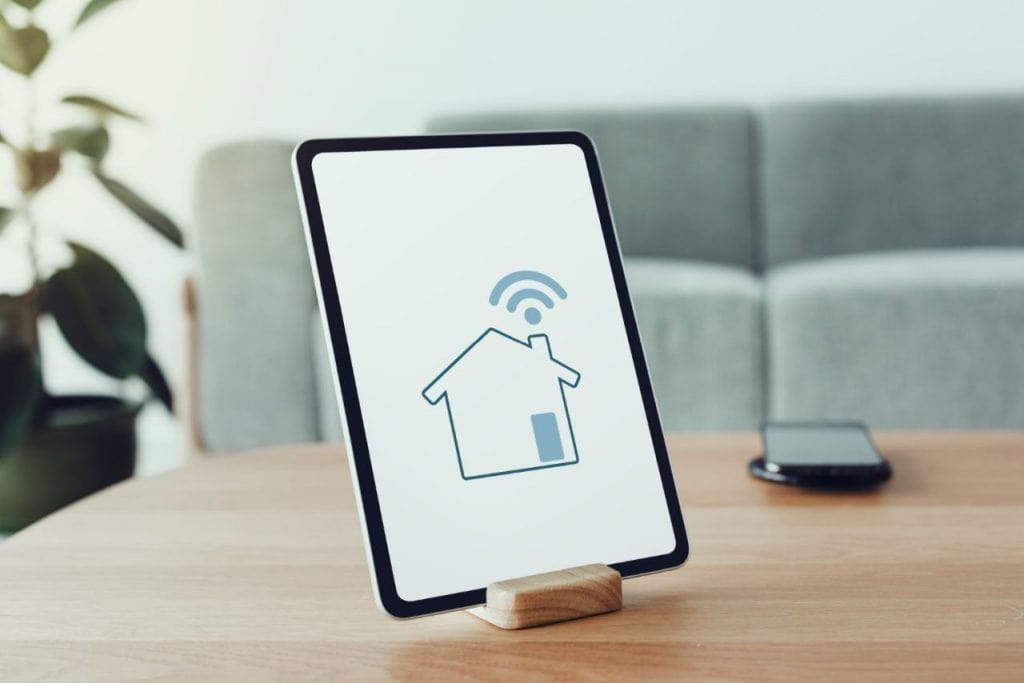
Worse yet, a hacker could crank up the oven and cause a house fire—all while you're away from home. If you opt for these devices, look for ones that let you lock the settings to make it harder for others to change them.
Rogue Recordings
Do you ever feel like someone is eavesdropping on you? If you own a smart speaker, your concern is well-founded. Not only do these digital voice assistants listen in on you continuously while on, but hackers can also exploit security loopholes to break into the speaker and issue their commands or harvest prior recordings. To protect your privacy, periodically delete stored recordings, don't pair security devices such as cameras or door locks with the speaker, and consider turning off your smart speakers when not in use.
Third-Party Flaws
Many smart devices allow homeowners to remotely turn on and off lights or open and close garage doors by integrating third-party mobile apps or smart-home platforms. But apps without secure authorization may allow people other than you to impersonate you and operate your devices if they get their hands on your phone.
Some apps group permissions to perform operations on the device rather than requiring separate permissions for each function. This could give a hacker the ability to, say, remotely lock and unlock your front door. Use only authorized apps and platforms to control your smart devices when in doubt.
Data Manipulation
The sneakiest smart-home hijackings leave no evidence at the crime scene. Because the data transmitted by smart devices like printers and smart TVs are often unencrypted, a virtual villain can view—and alter—data collected by your devices. Through this method, someone hoping to break into your home could, for example, replace the existing video feed from your surveillance camera with edited footage to avoid getting caught. Use advanced networking monitoring tools to help alert you to suspicious communications or operations on the network.
Outdated Software
Using old, threat-prone software on smart devices can make it even easier for cybercriminals to exploit them for nefarious purposes. The best way to protect your devices is to buy from reputable brands that make security a top priority and then set them to update automatically when new software is available.
This way, you'll have the latest security patches that close known loopholes, minimize the risk of viruses, and keep your smart home running smoothly and safely.
The Bottom Line
While the benefits of living in a smart home can seem very tempting, its drawbacks and risks can make you long for fewer technological days. As this trend gets more popular, will it be one we can ignore or even harness? Do you prefer living in a smart home or keeping your inanimate objects "dumb"?
- Philips Hue. The best smart lights. ...
- Amazon Echo Studio. The best smart speaker. ...
- Arlo Pro 4. The best home security camera. ...
- Eve Energy. The best smart plug. ...
- Eufy Video Doorbell 2K. The best video doorbell. ...
- Google Nest Hub Max. ...
- Nest Learning Thermostat. ...
- Best smart lock: August Smart Lock Pro.
